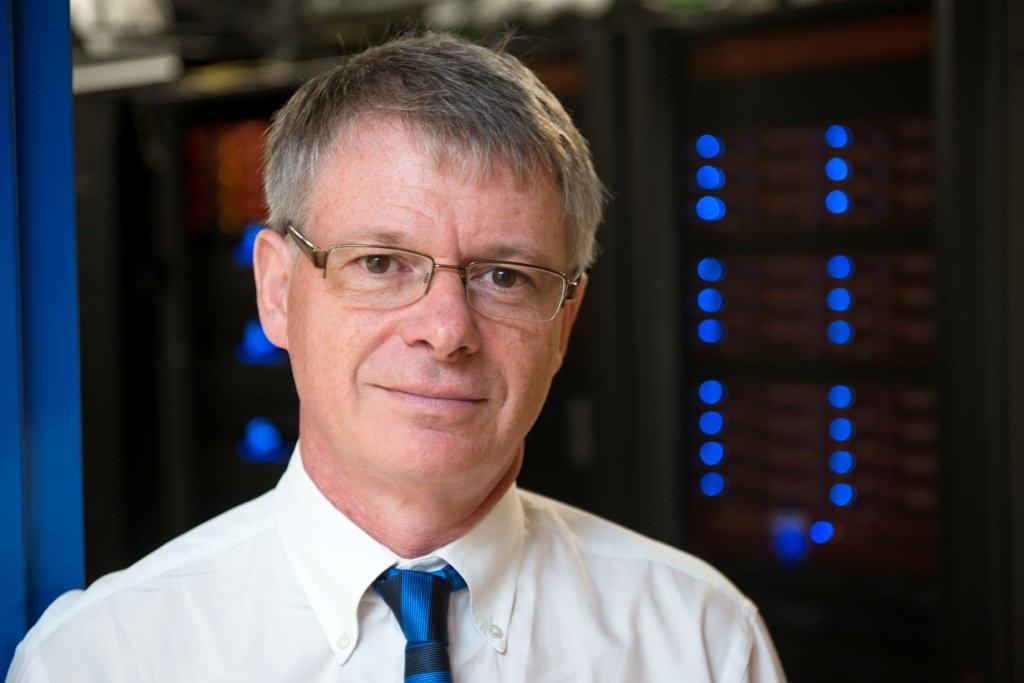26-hour Whole-Genome Sequencing Technique Published; Testing Poised for Implementation in Rady Children’s NICU by Year End

Stephen Kingsmore, MD, DSc
SAN DIEGO – Sept. 29, 2015 – In his first week in office, newly recruited president and CEO of the Rady Pediatric Genomics and Systems Medicine Institute (RPGSMI), Stephen Kingsmore, MD, DSc, will participate in a major announcement. Today in Genome Medicine, Dr. Kingsmore and a team of researchers report whole-genome sequencing for diagnosis in critically ill babies in 26 hours. Prior to this, the fastest genome-based diagnosis was 50 hours, a mark set in 2012. Cutting diagnosis time in
half adds precious hours for critically ill infants with unknown conditions whose bodies are rapidly failing.
“When time is of the essence, the standard ‘rule out’ testing methodology is simply not fast or precise enough to prevent suffering or death,” said Dr. Kingsmore.
The 26-hour method developed by Kingsmore and his team, allowed them to simultaneously evaluate nearly all of the 4,500 known genetic diseases in a single test. Identifying the genetic cause of an infant’s condition is critical for implementation of specific, targeted treatments, and best outcomes. Dr. Kingmore’s vision is to implement 26-hour genome testing at Rady Children’s Hospital-San Diego on a much larger scale than was possible hitherto. Over the next several months, RPGSMI will begin rapid genome sequencing on critically ill infants admitted to Rady Children’s NICU (neonatal intensive care unit) whose condition is unknown. Longer term, Dr. Kingsmore’s goal is to see genome testing move from research use to being part of the standard of care for all undiagnosed diseases in children at Rady Children’s. The 26-hour genome was made possible via Illumina’s HiSeq 2500 sequencer and expedited data analysis from Edico Genome’s DRAGENTM processor. It was funded by a $6 million grant from the National Human Genome Research Institute and National Institute of Child Health and Human Development.
“We are excited to be a part of this pivotal time for pediatric medicine,” said David F. Hale, Board Chair of Rady Pediatric Genomics and Systems Medicine Institute, “and look forward to leading the way in Genomics medicine for children.”
Rady’s success requires the right combination of factors including a visionary institution, philanthropic support, physicians who are ready to change the traditional approach to medicine, and a community with a vibrant biotech industry and spirit of collaboration.
Having a partner in Illumina, with whom Dr. Kingsmore has an established relationship, literally down the road in San Diego, is ideal for the type of collaboration RPGSMI hopes to achieve. The newest Illumina sequencers, such as the HiSeq X Ten, have been designed to reduce the cost of genome sequencing significantly. Dr. Kingsmore and Illumina are eager to explore ways the HiSeq X Ten might be used at RPGSMI.
“Illumina is delighted to have contributed to this milestone for genome research,” said Dawn Barry, Vice President of Market Development at Illumina. “We continue to innovate around improving both the speed and cost of sequencing.”
###
About Rady Pediatric Genomics and Systems Medicine Institute at Rady Children’s
The Rady Pediatric Genomics and Systems Medicine Institute at Rady Children’s was launched in April 2014 with a $120 million gift from the Rady Family and a $40 million investment from Rady Children’s Hospital. The Institute brings together world-class scientists and clinicians into a shared research infrastructure, one that will enable them to accelerate the translation and implementation of research discoveries for prevention, diagnosis, treatment, and ultimately cures for childhood diseases. For more information visit www.rchsd.org/research/genomics-institute.